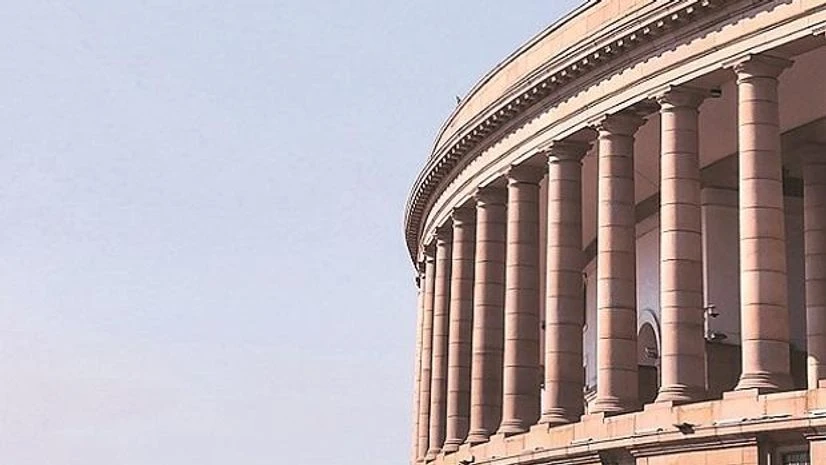Finance Minster Nirmala Sitharaman on Monday introduced the National Bank for Financing Infrastructure and Development (NaBFID) Bill 2021 in the Lok Sabha to pave the way for setting up of a government-owned development finance institution to help fund about 7,000 infra projects under the National Infrastructure Pipeline.
The proposed legislation will give effect to the Budget announcement made by the finance minister on February 1. The government has proposed Rs 20,000 crore to capitalise the institution.
The Union Cabinet had last week approved the Budget proposal of setting up a development finance institution (DFI), which will have tax benefits to enable fund raising from investors.
The National Bank for Financing Infrastructure and Development will be set up with a corpus of Rs 20,000 crore and the government will give an initial grant of Rs 5,000 crore.
The government expects the DFI to leverage this fund to raise up to Rs 3 lakh crore in the next few years.
The Bill seeks to establish the NaBFID to support the development of long term non-recourse infrastructure financing in India, including development of the bonds and derivatives markets necessary for infrastructure financing.
More From This Section
As per the statement of objects and reasons of the Bill, it seeks to enable the central government, multilateral institutions, sovereign wealth funds, and such other institutions to hold equity in the NaBFID.
It proposes to enable the institution to provide financial assistance to infrastructure projects located in India or partly in the country and to enable the company to borrow or raise money by way of loans both in rupees and foreign currencies.
It also provide adequate safeguards for decision making to address risk aversion and proposes establishment of other development financial institutions, in addition to the NaBFID established under the proposed legislation.
"The Institution shall have both developmental and financial objectives. Among other things, this would include developing a deep and liquid bond market of international standards for long-term infrastructure financing in India including through widening of the issuer and investor base," it said.
It would also facilitate the development of markets for interest rate derivatives, credit derivatives, currency derivatives and such other innovative financial instruments as may be necessary for infrastructure financing, it said.
"The financing objectives would involve establishing a credible framework that attracts equity investments from domestic and global institutional investors as well as debt investments, including green finance, from investors, aligned to their risk appetite and asset-liability profile, in order to cater the financing needs of Indian infrastructure sector," it said.
The government will provide the institution with grants and contributions, guarantees at concessional rates for foreign borrowings and any other concessions, the Bill said, adding that dilution or sale of stake may be considered once the NaBFID has achieved stability and scale.
The Bill proposes to establish the head office of the institution in Mumbai and permits to form subsidiaries or joint ventures or branches, in India or outside.
The Centre would hold at least 26 per cent of the shares at all times, it said, adding concessional rate of fees should not exceeding 0.1 per cent for government guarantee.
The performance of the institution would, once in every five years, be reviewed by an external agency to be appointed by the central government, it said.
In her Budget 2019-20 speech, Sitharaman had proposed a study for setting up DFIs for promoting infrastructure funding.
About 7,000 projects have been identified under the National Infrastructure Pipeline (NIP) with a projected investment of Rs 111 lakh crore during 2020-25.
NIP, a first-of-its-kind initiative to provide world-class infrastructure across the country and improve the quality of life for all citizens, will be crucial for attaining the target of becoming a USD 5 trillion economy by FY 2025.
During the pre-liberalised era, India had DFIs which were primarily engaged in the development of industry. ICICI and IDBI, in their previous avatars, were DFIs.
Even the country's oldest financial institution IFCI Ltd acted as a DFI. In India, the first DFI was operationalised in 1948 with the setting up of the Industrial Finance Corporation of India (IFCI).
Subsequently, the Industrial Credit and Investment Corporation of India (ICICI) was set up with the backing of the World Bank in 1955.
The Industrial Development Bank of India (IDBI) came into existence in 1964 to promote long-term financing for infrastructure projects and industry.
(Only the headline and picture of this report may have been reworked by the Business Standard staff; the rest of the content is auto-generated from a syndicated feed.)

)
